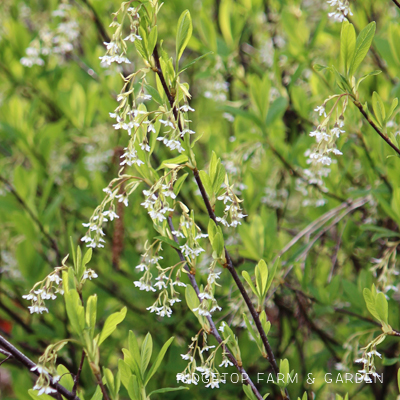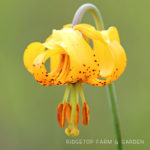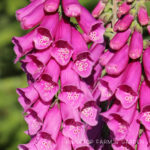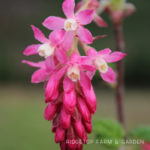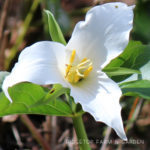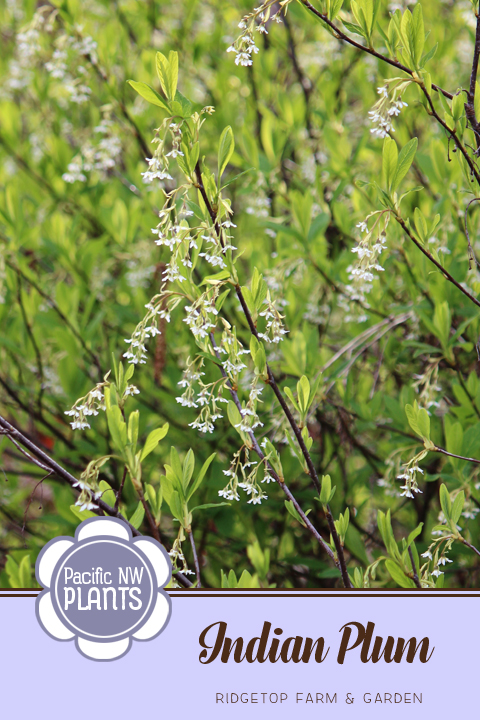
Indian Plum, also known as Oso Berry, is part of the rose family. Scientifically it’s known as Oemleria cerasiformis.
I am highlighting this plant because it is always a joy to see its flowers. They are one of the earliest shrubs around our house to bloom. Surely a sign that the loomy, gloomy winter is behind us. However, this year it’s still raining… a lot.
THE FLOWER
Usually I notice the flowers sometime in March. They are lovely, even though the leaves are just barely opening.
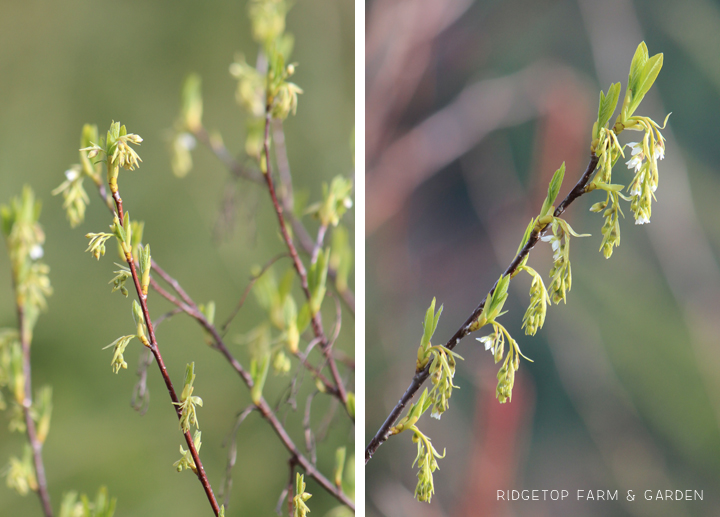
The Indian Plum produces many suckers, which can create a nice place for birds to nest and critters to hide.
This deciduous shrub is found in the far western part of the Pacific Northwest, from southern British Columbia to Northern California. It grows in moist wooded areas.
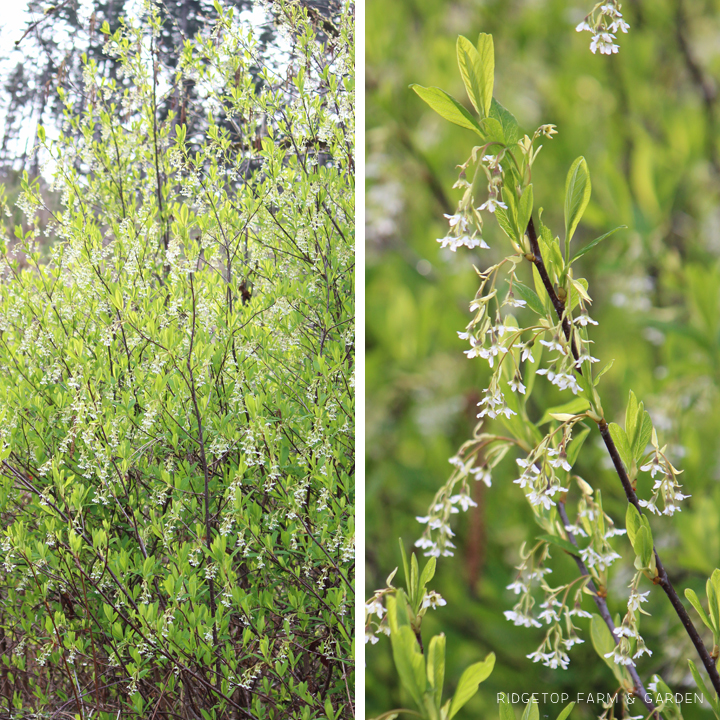
Clusters of flowers dangle from the stem. They are a great nectar source for hummingbirds, bees, and butterflies.
The Indian Plum is dioecious, meaning male and female flowers are not on the same plant. Because of this, they need insects to aid in propagation.
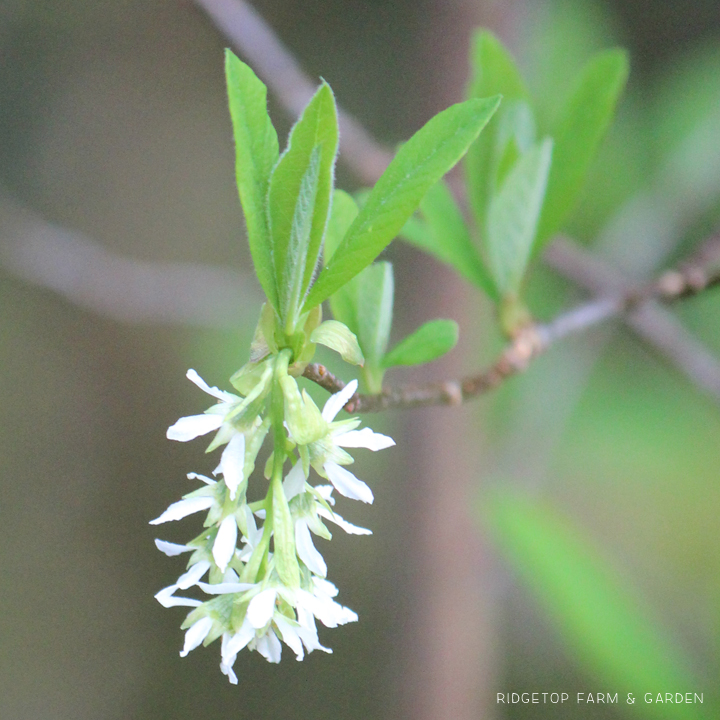
THE FRUIT
The fruit emerges where the flowers once were. They change from an orange color, to pinkish, to a dark bluish black.
The fruit is edible, but is bitter.
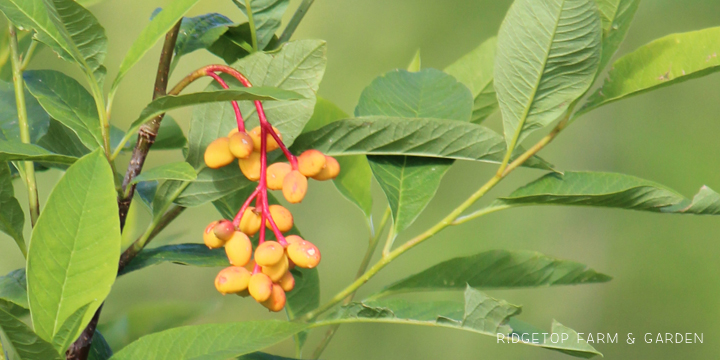
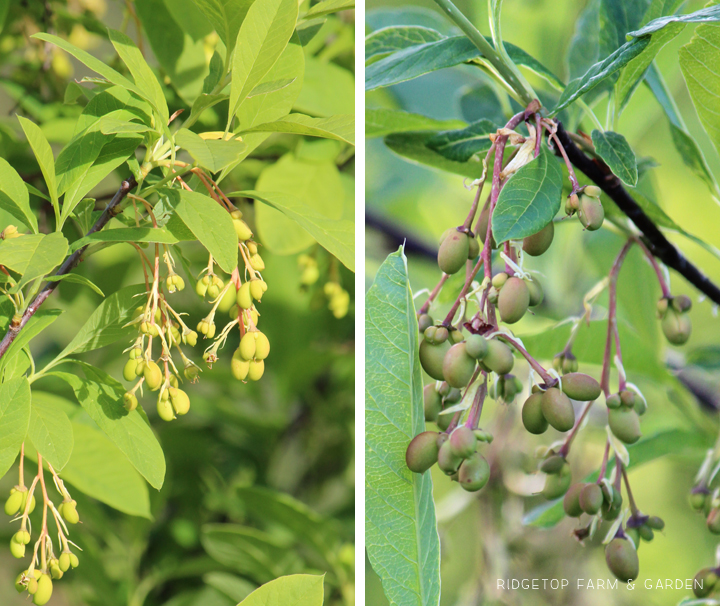
Another beautiful plant. Another reason I love living where we do.

